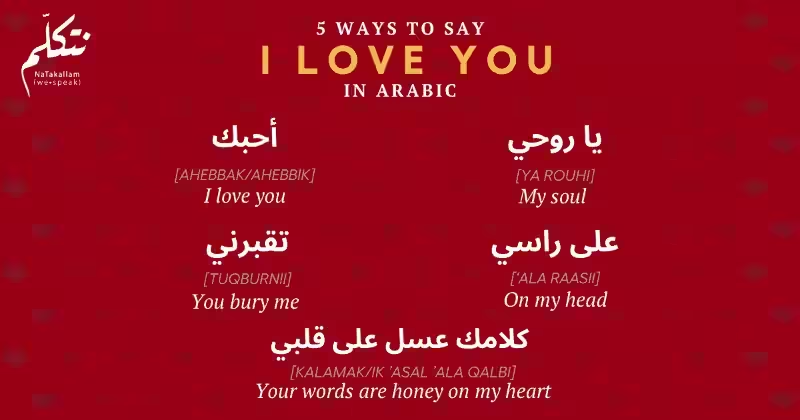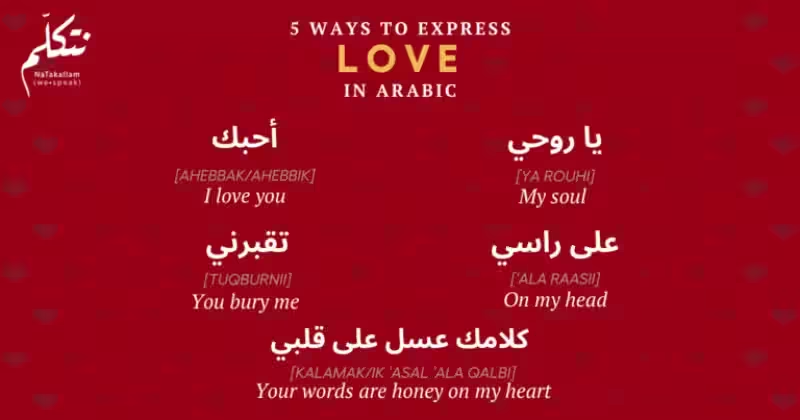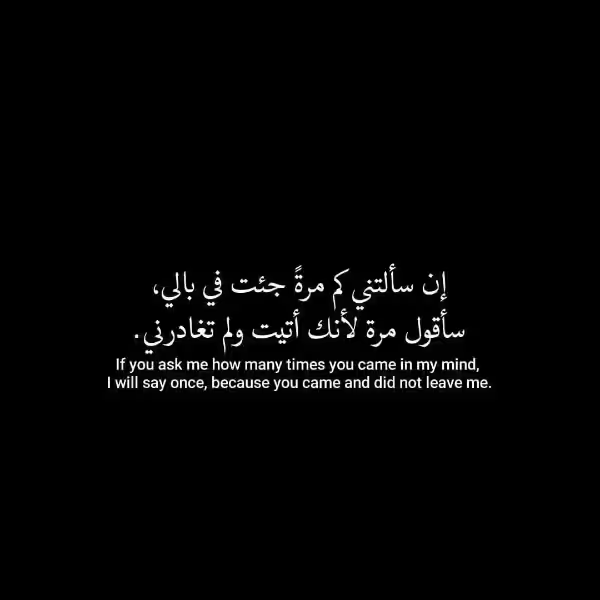
Expressing love in Arabic can be a beautiful and deeply personal experience. Learning how to say “my love” in Arabic opens up a world of possibilities for expressing affection, admiration, and devotion to someone special. This guide will walk you through the intricacies of expressing this sentiment, covering not just the literal translation, but also the cultural nuances and various ways to express affection.
Understanding the Nuances of “My Love”
The phrase “My Love” in Arabic isn’t a single, fixed expression. It depends heavily on the context and your relationship with the person you’re addressing. A term appropriate for a romantic partner might seem inappropriate for a close friend. The best approach is to understand the underlying emotional context you want to convey. This will guide you towards the most appropriate and respectful phrasing.
There are no single, universally-accepted direct translations that perfectly capture the “My love” sentiment. Instead, you need to consider the cultural context and the level of intimacy in your relationship. Arabic, like many languages, has a range of terms to express affection, each with its own subtle shades of meaning.
Formal and Informal Expressions
Formal Options
For formal situations or when expressing affection to someone you know less intimately, you might utilize more formal titles. These may include:
- حبيبي (Habibi): This is a common and respectful term often used for male partners. It carries a more affectionate tone than the formal “my love” translations you might find in a dictionary.
- حبيبتي (Habibti): This term is the female equivalent of “Habibi”. It is suitable for expressing affection to a female partner or close friend.
Informal Options
For expressing affection to someone you are close to, there are numerous options, ranging from casual to highly intimate. This is where the cultural context becomes crucial.
- عزيزي (‘Azīzī): This is a more formal and respectful way to address a male friend or someone you know well but do not have a close romantic relationship with.
- عزيزتي (‘Azīzatī): The female equivalent of ‘Azīzī.
More Intimate Expressions
These options often imply a stronger bond and are best used with people you’re very close to.
- روحي (Rūḥī): This means “my soul” and is a deeply intimate expression of love. It conveys profound affection and a profound connection.
- قلبي (Qalbī): This translates to “my heart”. It emphasizes the emotional connection and the profound place the person holds in your heart.
Beyond the Literal Translation
Understanding the Importance of Context
The most important aspect of expressing love in Arabic is understanding the context. A phrase that’s appropriate for an intimate partner would be inappropriate with a stranger. Consider the following:
- Relationship Dynamics: Is this a romantic partner, a close friend, or a family member?
- Level of Familiarity: How well do you know the person?
- Social Setting: Is this a formal or informal situation?
Using the Right Tone and Body Language
Even with the right words, your tone and body language can significantly impact how your message is received. Be mindful of your demeanor and ensure it aligns with the emotional content you’re trying to express.
Writing “My Love” in Arabic: The Correct Script
The way you write “my love” in Arabic depends on the specific term you choose. For example, “Habibi” is written as حبيبي. Learning the Arabic alphabet and understanding the correct diacritics (harakat) is crucial for accurate writing.
Additional Tips for Success
- Practice Pronunciation: Using online resources or language apps can help you master the nuances of Arabic pronunciation.
- Learn Cultural Norms: Understanding Arabic social conventions and etiquette helps avoid misunderstandings.
- Consider the Receiver: Choose the expression that best reflects the relationship you share and the emotional intimacy you want to convey.
- Be Patient and Persistent: Learning a language takes time and effort. Embrace the journey, and celebrate small victories as you progress.
By understanding the nuances of Arabic and the context of your relationship, you can use the most appropriate phrases to express your love effectively.
Frequently Asked Questions: Writing “My Love” in Arabic
How do I write “my love” in Arabic?
Unfortunately, the provided information doesn’t directly address how to say “my love” in Arabic. It focuses on the correct spelling and pronunciation of the word “love” itself (حبّ, hubb). To express “my love,” you need to combine the word for “love” with a possessive pronoun. The specific phrasing will depend on the context and the relationship.
How do I write the word “love” correctly in Arabic?
The word for “love” in Arabic is written as حبّ (hubb). There is a shadda (doubled consonant) on the ba (ب). The correct romanization is hubb, not hbb.
What is the correct pronunciation of “love” in Arabic?
The word “love” in Arabic, حبّ (hubb), is pronounced hubb.
Is there a kasra (ِ) on the “ha” (ح) in the word “love”?
No, there is no kasra on the ha in the word “love.”
What other terms of endearment can I use in Arabic?
The provided information doesn’t offer specific examples of terms of endearment. To find suitable terms, you should consult a more comprehensive Arabic language resource, like a dictionary or a cultural guidebook, that specifically lists expressions of endearment. Some possibilities could include words translating to “darling,” “sweetheart,” or other affectionate terms. The best choice will depend on your relationship with the person you’re addressing.








